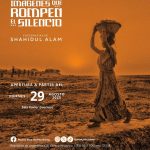The country’s independence war created divisions that persist to this day, in politics, religion and the media.
In 1971, Bangladesh declared independence from Pakistan and fought a bloody war to establish itself as a fledgling nation. More than four decades on, a country born out of troubles and bloodshed is experiencing growing pains. A war crimes tribunal that was meant to bring closure has instead brought old wounds back to haunt a new generation. At the heart of the story is the country?s main opposition party, the Jamaat-e-Islami.
For the past four weeks, thousands of Bangladeshis have occupied Shahbag Square to call for the harshest possible sentences ? including the death penalty ? for senior Jamaat leaders, figures who supported Pakistan against the pro-independence movement 40 years ago. It has not helped that one of Bangladesh?s most important newspapers has propagated the idea that the protesters are atheists who are against Islam. Violence has also been a problem with several dozens killed until now and prospects for a speedy resolution extremely slim.
With both the Shahbag protesters and supporters of the Jamaat demanding a voice to tell their version of Bangladesh?s past, how does the national media present a narrative to take the country into the future? Much of the current debate is also happening on social media with bloggers being targeted for their views.
In this week?s?News Divide?we examine the role and place of the media in the Shahbag protests. Helping us to gain a deeper understanding are the photographer and writer Shahidul Alam, Sabir Mustafa of the BBC Bengali Service and Abbas Faiz from Amnesty International.
Related link: Bangladesh’s War Wounds






Leave a Reply
You must be logged in to post a comment.